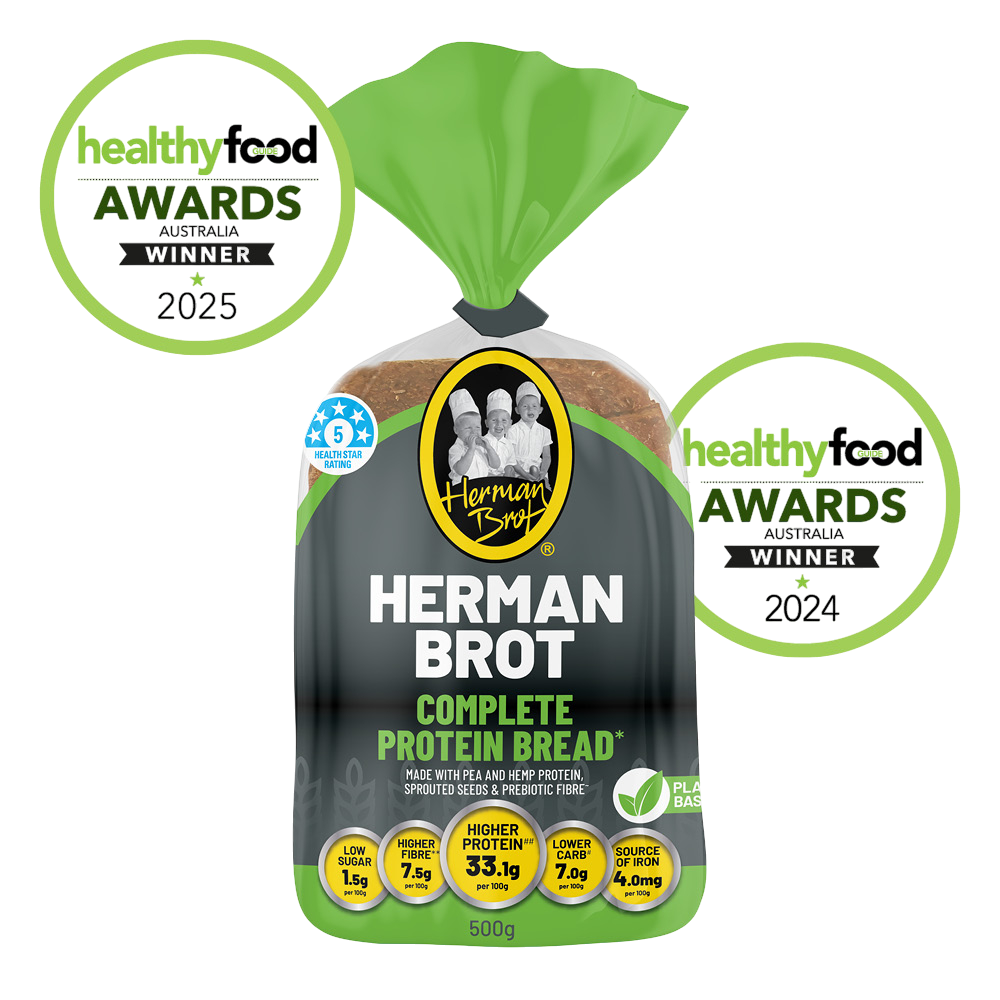Fuel Your Body Right: The Key Role of Protein as the Most Important Macronutrient

What is protein and why is it important?
Protein is one of the three macronutrients, along with carbohydrates and fats, that our bodies require in significant amounts for optimal functioning. It is essential for the growth, maintenance, and repair of tissues in the body. Proteins are made up of amino acids, which are the building blocks of life. There are 20 different amino acids, and our bodies can produce some of them, while others need to be obtained through our diet.
Protein plays a vital role in various bodily functions. It is involved in enzymatic reactions, hormone production, and transportation of nutrients and oxygen throughout the body. Additionally, protein is crucial for the formation of antibodies that help our immune system fight off infections and diseases. Without an adequate protein intake, our bodies would not be able to perform these essential functions efficiently.
Protein's importance extends beyond its role in bodily functions. It also plays a key role in weight management, muscle building, and overall health. By understanding the benefits of consuming enough protein, you can make informed choices about your diet and take control of your well-being.
Benefits of consuming enough protein
Consuming enough protein has numerous benefits for both your physical and mental well-being. Let's explore some of the key advantages of incorporating adequate protein into your diet.
### 1. Weight management
Protein has been shown to be a powerful tool in weight management. One of the reasons for this is its ability to increase feelings of fullness and reduce hunger. When you consume protein-rich foods, they take longer to digest, which means you feel satisfied for longer periods. This can help prevent overeating and reduce cravings, ultimately leading to weight loss or maintenance.
In addition to its satiating effect, protein also has a higher thermic effect compared to carbohydrates or fats. This means that your body burns more calories digesting and metabolizing protein. By increasing your protein intake, you can boost your metabolism and potentially burn more calories throughout the day.
Lastly, protein can help preserve lean muscle mass during weight loss. When you restrict calories, your body may break down muscle tissue for energy. By consuming enough protein, you can minimize muscle loss and promote fat loss instead, resulting in a leaner body composition.
### 2. Muscle building and recovery
Protein is widely recognized as an essential nutrient for those looking to build and maintain muscle mass. During exercise, especially resistance training, muscle fibers are damaged. Protein provides the necessary amino acids to repair and rebuild these damaged fibers, leading to muscle growth and strength gains.
To optimize muscle building, it's important to consume protein both before and after your workouts. Pre-workout protein fuels your muscles and provides them with the necessary amino acids to prevent excessive muscle breakdown during exercise. Post-workout protein is crucial for muscle recovery and growth, as it provides the building blocks needed for repair.
For individuals involved in intense physical activity or strength training, higher protein intake may be necessary to support muscle repair and growth. Aim for a protein intake of around 1.2 to 2 grams per kilogram of body weight to optimize muscle-building potential.
### 3. Enhanced satiety
If you've ever experienced the mid-afternoon slump or late-night snack cravings, you know how important it is to keep hunger at bay. Protein can help with that. As mentioned earlier, protein takes longer to digest than carbohydrates or fats, which means it keeps you feeling fuller for longer periods.
Incorporating protein-rich foods into your meals and snacks can help stabilize your blood sugar levels and prevent those energy crashes and cravings. By maintaining steady blood sugar levels, you can also avoid overeating and make healthier choices throughout the day.
In addition to its role in weight management, protein's ability to enhance satiety can be beneficial for individuals looking to regulate their appetite and make sustainable dietary changes.
Sources of protein - animal-based and plant-based
Protein can be obtained from both animal-based and plant-based sources. While animal-based protein sources are typically complete proteins, meaning they contain all essential amino acids, plant-based protein sources may require combining different protein sources to ensure adequate amino acid intake.
### Animal-based protein sources
Animal-based protein sources include meat, poultry, fish, eggs, and dairy products. These sources are particularly rich in essential amino acids, vitamins, and minerals. For individuals who consume animal products, these sources can be excellent options for meeting protein needs.
When choosing animal-based protein sources, it's important to prioritize lean cuts of meat, skinless poultry, and low-fat dairy products to minimize the intake of unhealthy fats and cholesterol. Additionally, opting for organic, grass-fed, and sustainably sourced animal products can have additional benefits for both your health and the environment.
### Plant-based protein sources
Plant-based protein sources include legumes (such as beans, lentils, and chickpeas), whole grains, nuts, seeds, and certain vegetables. While these sources may not be complete proteins on their own, combining different plant-based protein sources can provide all the essential amino acids your body needs.
Some examples of plant-based protein combinations include rice and beans, whole grain bread with nut butter, or lentils with quinoa. By incorporating a variety of plant-based protein sources into your diet, you can ensure you're meeting your protein needs while also benefiting from the fiber, vitamins, and minerals that these foods offer.
For individuals following a vegetarian or vegan diet, it's important to pay attention to protein intake and ensure adequate consumption. Consulting a registered dietitian or nutritionist can provide personalized guidance to meet protein needs on a plant-based diet.
Recommended daily intake of protein
The recommended daily intake of protein varies depending on factors such as age, sex, activity level, and overall health goals. The Recommended Dietary Allowance (RDA) for protein is set at 0.8 grams per kilogram of body weight for the average sedentary adult. However, this value may not be sufficient for individuals who engage in regular physical activity or have specific health goals.
For those looking to optimize muscle growth or recovery, higher protein intake is recommended. Nutritionists suggest a range of 1.4 to 2 grams of protein per kilogram of body weight for athletes or individuals engaging in intense exercise.
It's important to note that these recommendations are general guidelines, and individual needs may vary. Consulting a healthcare professional or registered dietitian can help determine personalized protein requirements based on your unique circumstances.
Protein and weight loss
When it comes to weight loss, protein is an invaluable tool. As mentioned earlier, protein's ability to increase satiety and reduce hunger can be beneficial in creating a calorie deficit for weight loss. By incorporating protein-rich foods into your meals and snacks, you can feel more satisfied while consuming fewer calories.
In addition to its satiating effect, protein can help preserve lean muscle mass during weight loss. When you restrict calories, your body may break down muscle tissue for energy. By consuming enough protein, you can minimize muscle loss and promote fat loss instead, resulting in a leaner body composition.
Protein can also boost your metabolism, as it has a higher thermic effect compared to carbohydrates or fats. By increasing your protein intake, you can potentially burn more calories throughout the day and enhance your weight loss efforts.
It's important to remember that weight loss is a complex process that involves creating a calorie deficit through a combination of diet and exercise. While protein can be a valuable tool in this journey, it should be part of a well-rounded and balanced approach to achieve sustainable results.
Protein for muscle building and recovery
Protein is the cornerstone of muscle building and recovery. Whether you're an athlete, a fitness enthusiast, or simply looking to increase your muscle mass, protein plays a crucial role in supporting these goals.
During exercise, especially resistance training, muscle fibers are damaged. Protein provides the necessary amino acids to repair and rebuild these damaged fibers, leading to muscle growth and strength gains. Consuming protein both before and after your workouts is crucial for optimal results.
Pre-workout protein fuels your muscles and provides them with the necessary amino acids to prevent excessive muscle breakdown during exercise. This can help improve your performance, increase your strength, and enhance your overall workout experience.
Post-workout protein is essential for muscle recovery and growth. It provides the building blocks needed for repair and helps replenish glycogen stores in your muscles. Consuming protein shortly after your workout can enhance muscle protein synthesis and promote efficient recovery.
The timing and amount of protein intake can significantly impact muscle building and recovery. Aim to consume a good source of protein within 30 minutes to an hour after your workout. This can be in the form of a protein shake, a protein-rich meal, or a combination of protein and carbohydrates.
For individuals involved in intense physical activity or strength training, higher protein intake may be necessary to support muscle repair and growth. Aim for a protein intake of around 1.2 to 2 grams per kilogram of body weight to optimize muscle-building potential.
Focus Product - Herman Brot Complete Protein Bread
Herman Brot’s Complete Protein Bread is a premium product that is at the cutting edge of the baking industry. Made from sprouted seeds, pea protein and hemp protein, this bread utilises non soy based complete proteins to help provide a better balance of amino acids than found in standard wheat breads.
With an incredible 33.1g protein per 100g, this bread is also Low Carb (7g/100g), Low GI and provides a good source of iron.
By sprouting the seeds before baking, the nutritional profile of the seeds are increased, making them more easily digestible. Coupled with the addition of the pre-biotic fibre Inulin, our advanced recipe combination promotes increased bio availability of all minerals and nutrients. Click HERE to buy!
Conclusion
Protein is undeniably the most important macronutrient when it comes to fueling your body right. Its role in building and repairing tissues, supporting muscle growth, and enhancing satiety makes it a game-changer for optimizing your nutrition and overall health.
Whether you're looking to manage your weight, improve athletic performance, or simply lead a healthier lifestyle, understanding the vital role of protein in your diet is crucial. By incorporating protein-rich foods into your meals and snacks, you can maximize your fitness gains, support muscle recovery, and achieve your health goals.
Remember to choose a variety of protein sources, both animal-based and plant-based, to ensure you're getting a wide range of essential amino acids and other important nutrients. Consult a healthcare professional or registered dietitian to determine your personalized protein needs based on your unique circumstances.
Fuel your body right with protein - the nutritional powerhouse that will help you become a healthier, stronger version of yourself.


